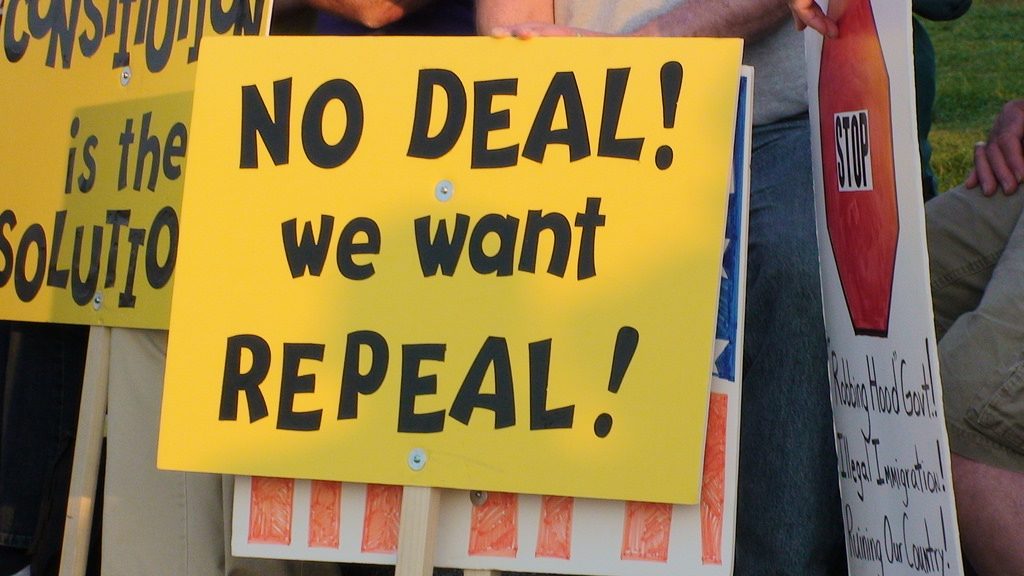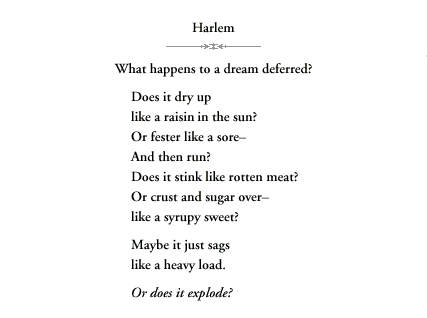
Killing the dream—twice
The shots fired by a white racist in Memphis in 1968 that murdered Martin Luther King were intended to slay both the dreamer and the Dream.
The current crusade—by a lily-white Trump administration and a nearly as uniformly white Republican Congress—to eradicate the political legacy and besmirch the persona of the nation’s sole black president amounts to a second, more symbolic but not less real, assassination.
Dismembering the Affordable Care Act (ACA)—Obamacare—is the centerpiece and most perverse aspect of this second crime. The bill that Republicans in the House of Representatives, led by Paul Ryan, are proposing to replace Obamacare is an abomination. It would make health care inaccessible to millions of poor and lower middle-class that now have it, benefit higher income people and the insurance companies, amounting to a huge economic transfer from the less affluent to the most affluent. Simply put, it’s just one more Republican exercise in the kind of Robin-Hood-in-reverse that the GOP has been carrying out since Ronald Reagan.

Although Republicans have been trying to repeal of ACA since it was enacted, and with the zeal of a pathological obsession, the rightist jihad to erase Obama also includes every other significant element of his policies—on the environment, on education, on taxes, on financial regulation, on inequality, everything.
The canonization and ritual celebration of King has reduced his dream to a single component—racial justice. Yet, King’s dream included many other elements: economic justice, social justice, a nation bent on making peace rather than waging war. Despite Obama’s continuation of the wars he inherited, the core of King’s Dream and Obama’s presidency were the same—the pursuit of justice and equality. Obamacare is the biggest piece of that quest and so the Republicans are moving to “repeal and replace” it with mindless haste.
Despite the rhetoric of repeal and replace, repeal is the Republicans’ real goal, the goal behind which Republicans are united. Replacement has been very much an afterthought, the content of which not even Republicans can agree on.
Repeal is regressive, reactionary, and just plain morally despicable. When Obama took office, there were a record number of people without health insurance in this country. Since Obamacare, the number of the insured has increased by 20 million, climbing to a record high.
This is progress; why would you want to undo that? To be sure, we have a long way to go to catch up with the likes of Canada, the UK, France, and the rest of the advanced nations. But Obamacare was both a big step forward and a potential stepping stone that could help the United States eventually join the rest of the world on health care. The arc of history is long, but it bends toward justice, said Martin Luther King. Obamacare was the first law in a long time that bent the arc in that direction.
And that is the precise reason passage of Obamacare so infuriated Republicans. They thought they had reversed and forever precluded any drift toward even the mildest form of social democracy. They had even gotten Democratic president Bill Clinton to collude with them to abolish welfare and deregulate the financial markets. Both were exercises in the excessively celebrated practice of bipartisanship that led to very different but equally disastrous results that inflicted broad pain.
Then came Obamacare, proof to the GOP that while burying much of the safety net, they hadn’t poured enough salt on the soil to prevent fresh shoots of social democracy from sprouting again. Republicans and right-wingers were furious and indignant.
Obamacare had to go. Under Obama, House Republicans passed a zillion bills to repeal Obamacare, bills they knew would go nowhere. Republicans were not just engaging in futility or expressing their obsession. They were throwing darts at an image of their nemesis to recharge their will and improve their aim for the time the real object of their hatred came into their sights.
As reactionary as the Republicans’ replacement bill is, some on the extreme right of the party, like Senator Rand Paul, are unhappy because they don’t think it goes far enough. Because it keeps some elements of Obamacare, they are calling the replacement Obamacare 2.0. New York Times columnist Paul Krugman observes: “… better description would be Obamacare 0.5, because it’s a half-baked plan because it accepts the logic and broad outline of the Affordable Care Act while catastrophically weakening key provisions.” This unviable hybrid, according to Krugman, would almost certainly “lead to a death spiral of soaring premiums and collapsing coverage. Which makes you wonder, what’s the point?”

But that is precisely the point, creating a death spiral for the biggest Obama-era program that redistributes resources down and returning to the GOP practice of redistributing resources up—at whatever cost and collateral damage necessary. Krugman explains the ideological/class basis of the repeal project this way: “You can’t make something like Obamacare work without giving lower-income families enough support that insurance becomes affordable. But the modern GOP always wants to comfort the comfortable and afflict the afflicted; so the bill ends up throwing away the taxes on the rich that help pay for subsidies, and redirects the subsidies themselves away from those who need them to those who don’t.”
How that would work out in Florida is described in an excellent article and map in the March 11 edition of the Miami Herald (“GOP’s plan would impact Florida’s elderly, poor”). Roughly the same scenario would apply in every other state as well.
As the ult-right and the Republicans go about trying to drive a stake through the dream of a more just society, they should ponder these words by the great African American poet Langston Hughes:



